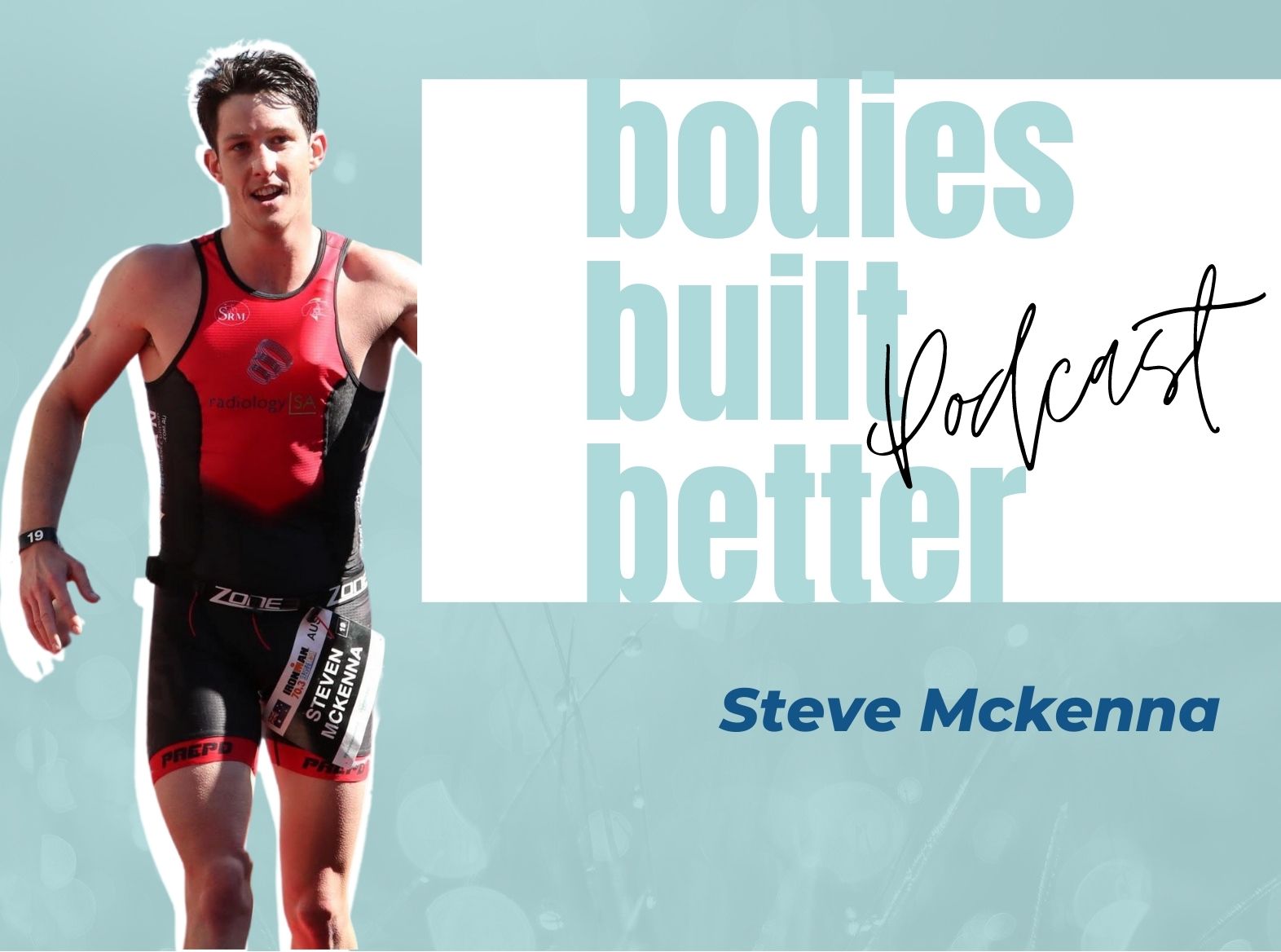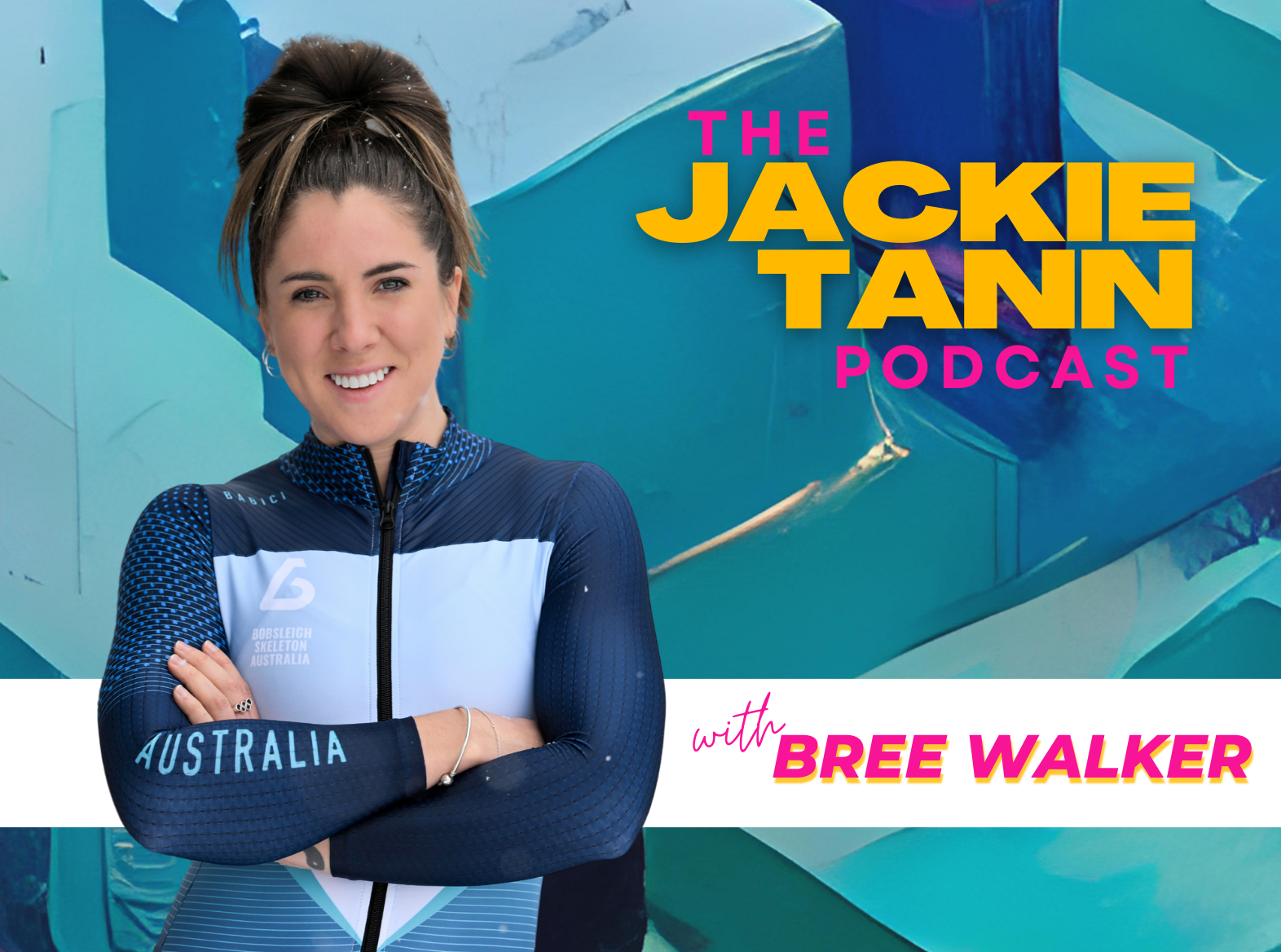Jackie 00:14
Today on the show, I chat with professional triathlete and four times South Australian triathlete of the year Steve McKenna, Steve made the transition from football to triathlon back in 2015, after he broke his leg playing footy, and has since become a pro triathlete ranking 51st in the pro triathlete organisation world rankings. And if there wasn’t impressive enough for you, he achieved that in between studying law and marketing, and juggling a full time job since June 2019. His results in international races have either been first or second, which has resulted in him being ranked second in the world for the 2019 Challenge Family race series. He also debuted in the Ironman distance at Challenge Anhui, China, and finished second placed with one of the fastest Iron Men distance debuts in history. It was so awesome chatting with Steve and getting a bit of insight into what it takes to become a triathlete or a pro triathlete for that matter, and stay there. And also the fact that 2020 has provided more than its fair share of challenges. This was such a fun chat, enjoy this episode with Steve McKenna.
Jackie 02:20
Steve, thank you so much for chatting with me today. You are ranked in the top 50 professional triathlete organisation World Rankings. When you’re having a shit day. Do you just remember that stat and “oh yeah things are right.”
Steve 02:42
In terms of training, yeah, yeah, that’s good. Everything else? Yeah, I think I am. I probably determine success by my happiness. So that’s gonna be irrelevant in the end.
Jackie 02:57
What I think is pretty incredible, though, is I guess you’ve got that ranking based on your history, which is not going that far back. But you were training, what, up to 30 hours a week, full time job and study. So I think it’s pretty incredible that you’ve reached ou know, that’s so far and, and have so much to go. But before we get into all of that, let’s get some background on you. Where did it all start with you? And how did you eventually get into triathlons.
Steve 03:35
I was a runner at a national level as a junior so I was new I liked aerobic endurance sort of sports, but um, I used to get nervous as a kid so I’d always underperform at Nationals. And if you look up steeplechase stack on YouTube, that’s an example of retaking Yeah, it’s me falling headfirst into the water.
Jackie 03:57
So not one we should put in the show notes.
Steve 04:01
You probably should actually. It’s pretty funny looking back. It’s funny now, but it’s devastating time. But basically, that’s an example of me in pre race nerves getting the best of me. So I gave up on it as a junior, and it was really sad. And yeah, it was it was all that mattered to me. And that’s the reason I got so nervous because it was all that mattered. But I gained, perspective by quitting running, going and playing footy with mates and having fun, drinking a lot more than I would have imagined as an elite level runner as a junior. And then yeah, with the perspective again, I eventually, you know, started loving running again but still playing footy. And I was in a footy club where it’s hard to leave, you’re kind of so close with everyone there and you know, if you were to leave without a valid excuse, like why are you going so eventually, I did get back into my running and I broke my leg really badly playing Footy one day, and that was just for an amateur League club roster of local agents, and we took it very seriously. But it was more about the social stuff, really. So yeah, when I broke the leg, and it made a big noise, it was a horrible man of pain. And as I was squeezing, squeezing the grass, pulling the roots out, and basically screaming, all I thought of was that the fact that I couldn’t do the City to Bay of a that year. It wasn’t like, I’m not going to be able to do finals in two weeks for footy. So, straightaway, in that moment, I realised that I should be running. You know, that’s obviously what I care about. And, you know, footy was stopping that from happening.
Steve 05:44
So, I decided straightaway to do a 180 on the way I was living my life. And but yeah, rehabilitation, obviously involved cycling and swimming. So I would, I was non weight bearing for, I think, 14 weeks, and on crutches for 14 weeks, so it was pretty horrible. But after asking physio, my physio and the doctor what I can do, they said, stationary cycling, take off the moon boot, and swimming. So I did that. And I just tied my feet together because the syndesmosis ligament. If I was to kick, it would ruin the recovery. So yeah, I got pretty good at both of those things, as good as you can with a recovering leg and eventually took the moon boot off and went up Norten Summit. And there was a SASI coach riding and he said, What’s your PB? And I said, I don’t know. I’ve never done it. And he said,
Steve 06:44
Oh, your first time on the hill,
Steve 06:45
I said, What was my first ride on the road ever?
Steve 06:47
And, and he said, Well, you’ve just done 16 minutes for Norton summit. I had no idea what that meant at the time. And anyway, they got me out training with them. With Cycling SA, South Australian Institute of Sport, it was just twice a week, I would join the group. And they taught me the gears and the bike and everything like that. told me that I wasn’t allowed to wear footy socks and footy shorts on the rides, eventually, I learnt that wasn’t going that wasn’t accepted by anyone in the team. So yeah, basically, I was falling off the bike, too often coming down the hills and all sorts because I would turn corners with my left leg down. If we were turning left and just didn’t know anything. I was so green in the sport. So it was it was really affecting my mental, you know, the happiness of just doing cycling because it was just a huge skill to learn. I didn’t do it as much as much as most people did as a kid probably. So this bike skills weren’t there at all. And it’s not just,.. it wasn’t going to be just learning… You know, how to be a professional cyclist or anything like that it was learning to how to ride a bike as well. So it seemed like a huge, huge task. And then eventually I realised once I could run that triathlon might be the go, so I immediately stopped this SASI cycling, which probably was a huge opportunity I was passing up. Because no 22 year old gets asked to join SASI cycling, but yeah, triathlon seen the way to go, because I love running so much. And swimming, I was enjoying that too. The SASI coaches said not to run, it’s gonna ruin your bike legs. And that wasn’t gonna fly with me so quit, did the first draft one locally in West lakes and won it and then that week I pulled back on… well I quit my landscaping job and decided I was going to do this as a pro, no matter what it took. So within a week, I was completely obsessed and taking it very seriously.
Jackie 08:56
Can you talk about your first triathlon in a little bit more detail? Like, going into it? What were you even thinking like, did you think you w ere going to place? Did you know what you’re getting yourself into? Who the competitors were like, What? What was that all like for you?
Follow Steve: @stevemckenna_
Get in touch: jackie@jackietann.com | @jackietann_rmt












